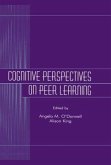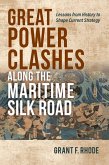The study of collective uprisings in the past has
suffered from an intellectual tradition that tends
to equate social protest with crowd behavior --- a
form of sociopathology endemic in societies
experiencing social breakdown. This study
challenges that perspective. In looking at the
three people power uprisings in the Philippines
which occurred over a time period of fifteen years,
this book employs a Goffmanian framework to explain
the quasi-religious and festive character of these
uprisings. They are dramaturgical productions ,
each one governed by an underlying script. Two
uprisings embody the larger moral vision among
middle-class protestors who adhere to a distinct
social project called modernity. The third uprising
elaborates on the notion of the hidden transcript
which is formed in the subterreneal regions of
discourse among the poor, and are inspired by the
Pasyon, the movies, and the telenovelas. The study
ends with a meditation on the possibilities of
utilizing dramaturgy as a social critique and as a
project for the deepening of humanistic concerns.
suffered from an intellectual tradition that tends
to equate social protest with crowd behavior --- a
form of sociopathology endemic in societies
experiencing social breakdown. This study
challenges that perspective. In looking at the
three people power uprisings in the Philippines
which occurred over a time period of fifteen years,
this book employs a Goffmanian framework to explain
the quasi-religious and festive character of these
uprisings. They are dramaturgical productions ,
each one governed by an underlying script. Two
uprisings embody the larger moral vision among
middle-class protestors who adhere to a distinct
social project called modernity. The third uprising
elaborates on the notion of the hidden transcript
which is formed in the subterreneal regions of
discourse among the poor, and are inspired by the
Pasyon, the movies, and the telenovelas. The study
ends with a meditation on the possibilities of
utilizing dramaturgy as a social critique and as a
project for the deepening of humanistic concerns.








